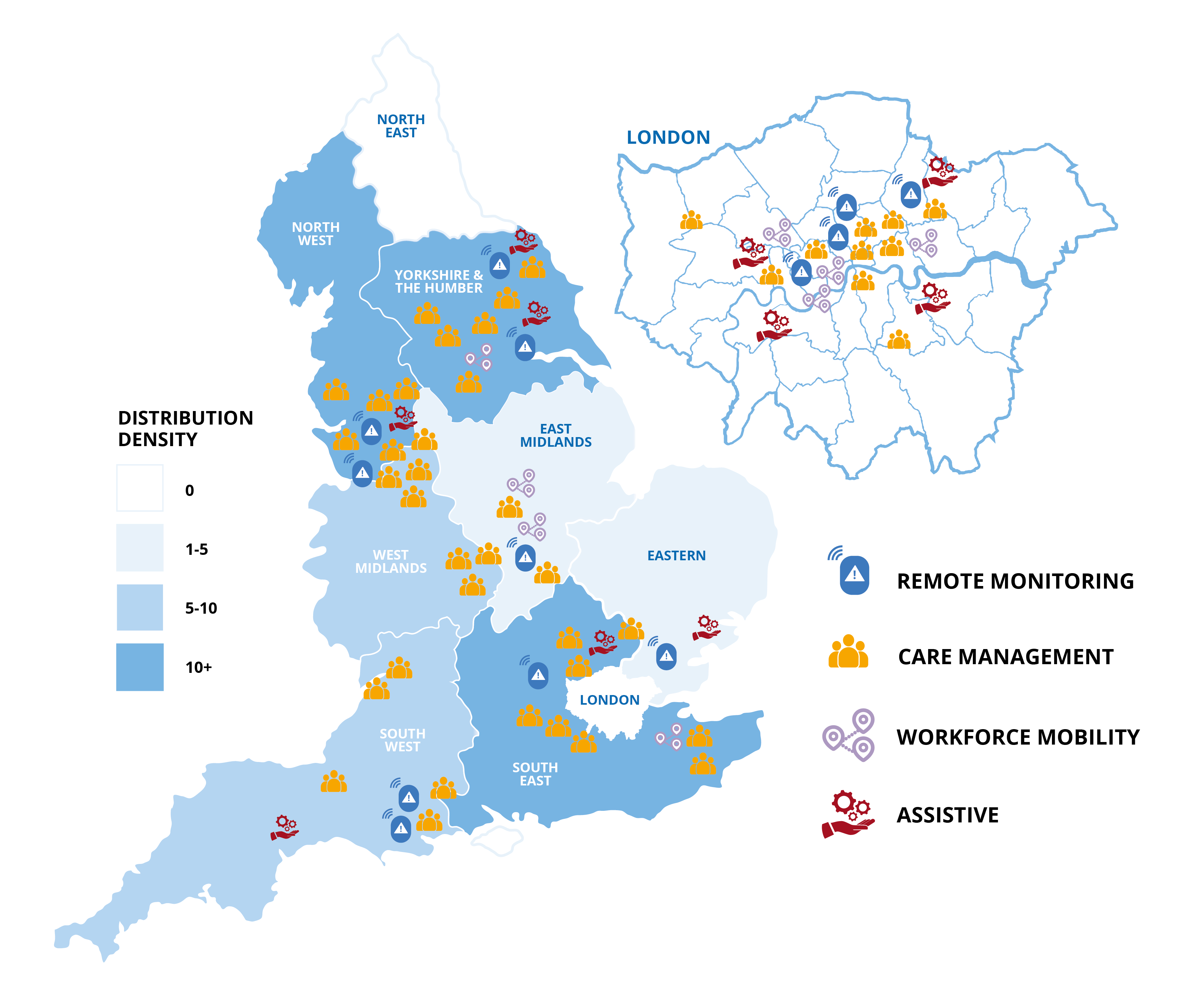latest
Government urged to invest in digital technologies for residential care
A new report is urging the government not to miss the opportunity to invest further in digital technologies for use across residential care settings.
Press release
8th December 2021
Government urged to invest in digital technologies for residential care
A new report is urging the government not to miss the opportunity to invest further in digital technologies for use across residential care settings.
The Residential Care Tech Landscape Review, released today by Future Care Capital (FCC), shows there is a limited number of solution providers serving the whole sector. It recommends incentivising development, uptake of solutions and scaling of beneficial technology. The report is the fourth instalment in a series of technology landscape reviews exploring digital technologies start-ups across home care, mental health and learning disabilities.
With almost half a million people in residential care settings across the country, care models have not changed for a long time. Digitisation is increasing across the sector and this presents us with an opportunity to explore delivering care in a new way. The policy and innovation landscape is shifting rapidly in the context of COVID-19, Integrated Care Systems (ICSs) and technology is increasingly a priority for the sector.
The residential care sector in the UK has a complex structure and is arranged between government funded, charity and privately funded care. Residential care homes cater for a range of scenarios, from children to young adults through to elderly care and hospice care. The COVID-19 pandemic has had a profound impact on the residential care sector. Vulnerable individuals in residential settings have suffered disproportionately through the pandemic, similarly the pandemic has had a significant impact on residential care workers. The true impact of the pandemic may not be fully realised for a number of years. It is already clear that residents and care workers have died at higher rates, mental health is on the decline and retention of care workers is more difficult than ever.
The technology solutions being developed for residential care are largely focused on back-office tasks and management of care operations. There is a huge opportunity to improve outcomes by focusing on the people engaged with care services and enhancing their lives. Dr. Peter Bloomfield, FCC's Head of Policy and Research

The sector is not currently communicating its needs or challenges well enough. We need to get people in the care sector talking to designers and developers. Professor Martin Green, Chief Executive Officer of Care England

The burden and the onus of digitisation remain on carers. More support is needed to upskill carers, provide standards on assessing which technologies are best, cybersecure practices, and to cement the use of digital technology where it is helpful. Vic Rayner, Chief Executive Officer of Care England

Read the review to find out more about the companies, the function of their technologies and the opportunities they present for residential care settings.
This publication is available to download at futurecarecapital.org.uk and will be discussed at greater length at the upcoming webinar on 14th December – register here now for free.
ENDS
For more information or interviews, please contact CJ Marshall at Future Care Capital on Curtis-james.marshall@futurecarecapital.org.uk or 020 3909 3704.
Notes to editors
Future Care Capital is a charity that undertakes research to advance ideas that will help shape future health and social care policy and deliver better outcomes for individuals living in the UK. Beginning life as the National Nursery Examination Board in 1945, the charity has evolved throughout its 70-year history and we continue to have Her Majesty the Queen as our Royal P




